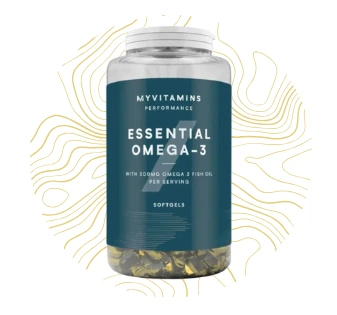Omega-3 fatty acids are among the most essential nutrients for maintaining overall health. Since our bodies can't produce them on their own, we must rely on food or supplements to get these vital fats. But why are they so important, and how can we make sure we're getting enough?

### What Are Omega-3 Fatty Acids?
Omega-3 fatty acids are essential fats that play a crucial role in many bodily functions. They are necessary for optimal health but cannot be made by the body, which means we have to get them from our diet or supplements.
There are three main types of omega-3s:
- **EPA (Eicosapentaenoic Acid):** Found mainly in fish, EPA has strong anti-inflammatory properties and supports heart health by lowering triglycerides and improving blood vessel function.
- **DHA (Docosahexaenoic Acid):** Critical for brain and eye development, DHA is especially abundant in the brain and retina, helping with cognitive function and visual health.
- **ALA (Alpha-Linolenic Acid):** Found in plant sources like flaxseeds, chia seeds, and walnuts, ALA can be partially converted into EPA and DHA, though not very efficiently.
### Why Are Omega-3s Important?
Omega-3s offer a wide range of health benefits:
- **Heart Health:** Omega-3s help lower triglyceride levels, reduce blood pressure, and improve circulation, all of which support cardiovascular health.
- **Brain Function:** DHA is essential for brain structure and function. It may enhance memory, focus, and mood, and even help prevent depression.
- **Anti-Inflammatory Effects:** These fats can reduce inflammation in the body, which is linked to many chronic diseases.
- **Eye Health:** DHA is also important for maintaining good vision and protecting against age-related macular degeneration.
- **Skin Health:** Omega-3s contribute to healthy, hydrated skin and may help manage conditions like eczema and acne.
- **Pregnancy Support:** During pregnancy, omega-3s support fetal brain and eye development and may reduce the risk of complications.
### How to Get Enough Omega-3
Since our bodies can’t make omega-3s, it’s important to include them in your daily routine.
#### 1. Diet Rich in Omega-3
Eating foods high in omega-3s is the best way to meet your needs:
- **Fatty Fish:** Salmon, mackerel, sardines, and trout are excellent sources of EPA and DHA.
- **Plant Sources:** Flaxseeds, chia seeds, walnuts, and oils like flaxseed oil and hemp oil provide ALA.
- **Fortified Foods:** Some eggs, milk, and yogurt are enriched with omega-3s.
#### 2. Omega-3 Supplements
If you don’t eat enough fish or plant-based sources, supplements can help fill the gap. Fish oil is one of the most common options, offering both EPA and DHA. For those who prefer plant-based alternatives, algae-based supplements are a great choice.
It’s recommended to consume fatty fish at least twice a week and include ALA-rich foods regularly. However, if you’re a vegetarian, vegan, or simply don’t enjoy fish, taking an omega-3 supplement is a smart and convenient option.

### Summary
Omega-3 fatty acids are essential for a variety of bodily functions, from heart and brain health to inflammation control and eye protection. While our bodies can’t produce them, there are plenty of ways to get them through diet and supplements. Whether you choose to eat more fish, add flaxseeds to your meals, or take a daily supplement, making sure you get enough omega-3s is a simple yet powerful step toward better health.
Tuna Loin,Frozen Tuna Loin,Fresh Tuna Loin,Yellowfin Tuna Loin
ZHEJIANG RETRONX FOODSTUFF INDUSTRY CO.,LTD , https://www.retronxfoods.com